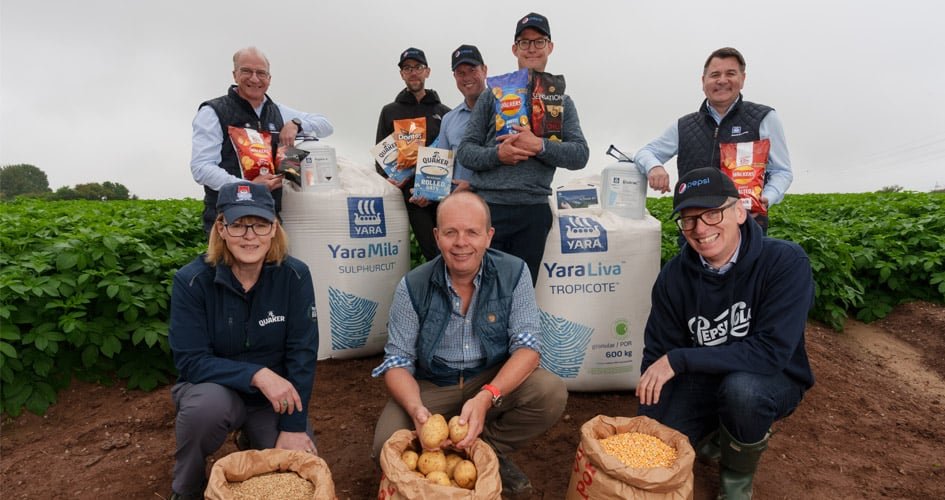PepsiCo Europe and Yara join forces to decarbonise crop production
The partnership that helps drive the adoption of regenerative agricultural practices will include approximately 1,000 farms, covering a total of around 128,000 hectares across the EU and the UK.
PepsiCo Europe and Yara announced today a long-term partnership in Europe aimed at providing farmers with crop nutrition programs to help decarbonize the food value chain.
As part of the partnership, which spans multiple countries, participating PepsiCo Europe farmers will be equipped with best-in-class crop nutrition products and advice as well as precision farming digital tools. This will allow them to increase nutrient use efficiency (NUE), boost yields and reduce the carbon footprint of their crops. Yara, the leading crop nutrition company in Europe, will supply PepsiCo with the products and services.
The partnership, which will help drive the adoption of regenerative agricultural practices, will include approximately 1,000 farms, covering a total of around 128,000 hectares across the European Union and the UK. Efforts will initially focus on potatoes, a key crop for PepsiCo, and then expand to other crops such as oats and corn. Fertilizers are the biggest opportunity to reduce emissions as fertilizer production and in-field emissions account for half of PepsiCo’s average potato carbon footprint in Europe.
This partnership will also further scale up sustainable nutrient management practices across the PepsiCo farmer groups. This will include full season crop and soil data capture and monitoring using PepsiCo’s CropTrak and ML Analytics tool, and will be complemented by Yara’s digital solutions offering, for example digital satellite imagery via the AtFarm platform and the MegaLab soil analysis.
Yara will deliver up to 165,000 tons of fertilizer per year to PepsiCo, covering around 25 per cent of their crop fertilizer needs in Europe by 2030. These fertilizers will be mostly Yara Climate Choice fertilizers, which include low-carbon footprint fertilizers produced from either renewable ammonia (Herøya, Norway) or low-carbon ammonia via carbon capture and storage (CCS), currently under construction in Yara Sluiskil. The mix will also include Yara’s standard premium nitrate-based mineral fertilizers produced using natural gas, which have a carbon footprint that is around 50% lower than most non-EU fertilizers thanks to the use of catalyst technology. The aim of the partnership is to upgrade to Yara Climate Choice fertilizers over time as production scales up and technologies mature so that all of the 165,000 p.a. tons are Yara Climate Choice fertilizers by 2030.
The collaboration underlines the companies’ shared commitment to building a more sustainable food system in line with the European Union’s climate targets. At the same time, it will support farmers through transition costs to ensure their livelihoods are not adversely impacted.
“This partnership with Yara aligns with our end-to-end transformation known as PepsiCo Positive (pep+) and will be critical as we transition towards the net-zero food system of the future. Targeting Scope 3 emissions is central to our pep+ agenda, but it can be one of the most challenging areas to directly influence. Providing our farmers with fertilizers that have a lower carbon footprint and supporting them to improve crop nutrition end-to-end will allow us to make a significant step towards our target of achieving net zero by 2040,” said Archana Jagannathan, Chief Sustainability Officer at PepsiCo Europe.
“To grow a nature-positive food future and transform our food system, we need to collaborate across the food value chain. We’re excited to work with first movers like PepsiCo to help make this a reality. Decarbonizing food production will be critical to delivering on the Paris Agreement – and farmers will play a key role in helping us get there,” said Mónica Andrés Enríquez, Executive Vice President for Europe at Yara.
The partnership that helps drive the adoption

